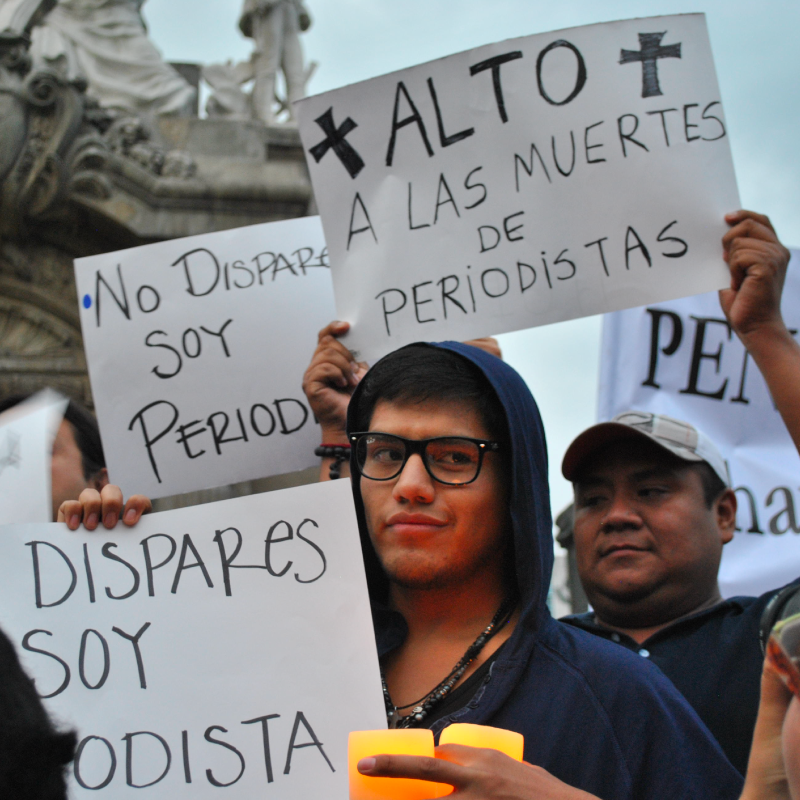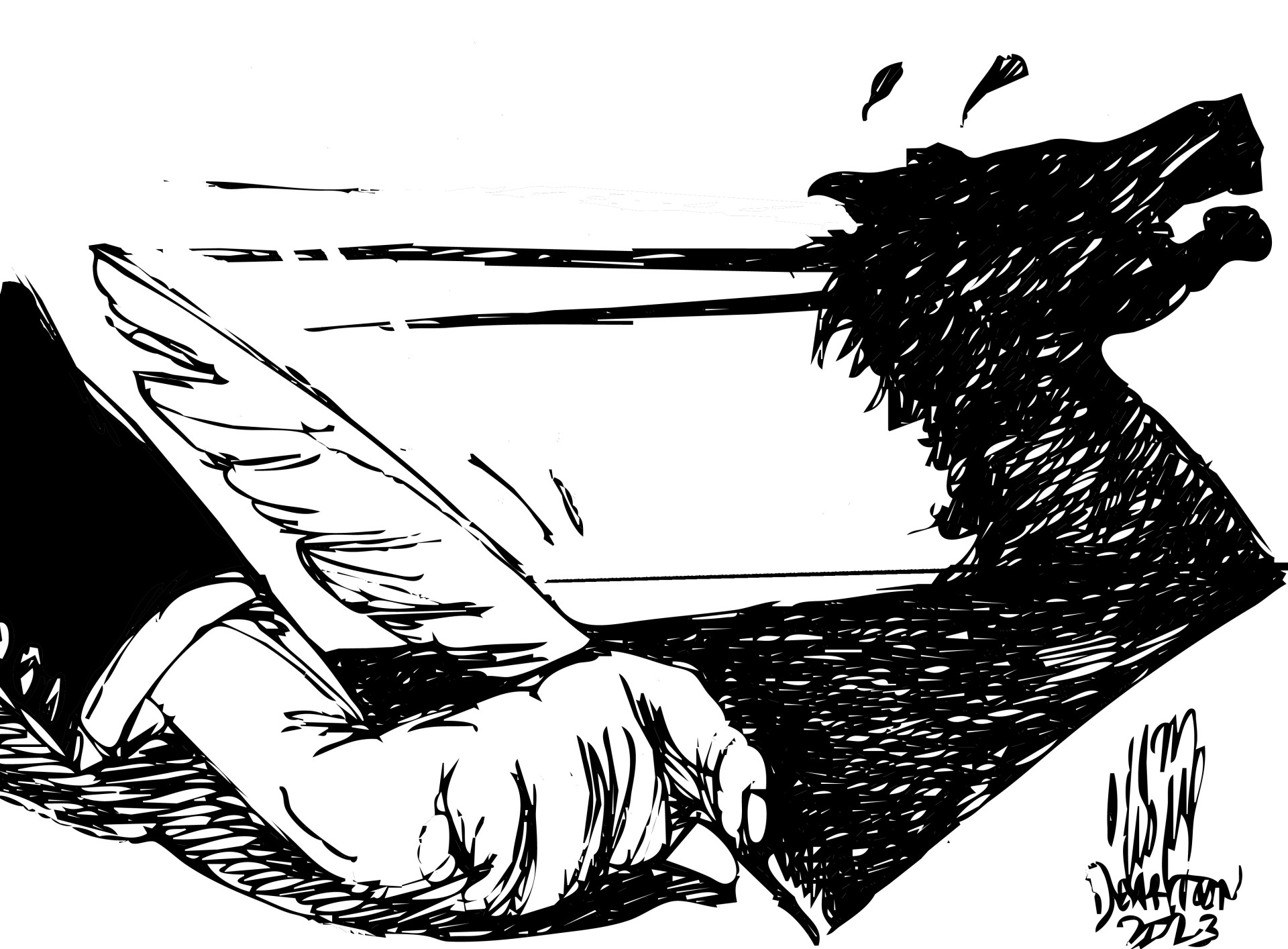
Central America
Central America
Central America
Restricted freedom of press
Restricted freedom of press
Restricted freedom of press

Central America
Restricted freedom of press

Candles for freedom
Journalists in Central America under pressure
In Central America, restrictions on press freedom have long ceased to be a novelty, and the situation is becoming increasingly critical. According to the latest report by the non- government organization “Reporters Without Borders”, which measures press freedom in 180 countries, only the situation in Costa Rica (ranked 23) is satisfactory, whereas Panama (ranked 69) shows noticeable problems. El Salvador (ranked 115) and Guatemala (ranked 127) are in a difficult situation, and Nicaragua (ranked 158) and Honduras (ranked 169) face very serious conditions.
According to Pedro Trujillo, a Spanish university lecturer living in Guatemala and also directing the independent and government-critical radio program "Con Criterio", "most Central American governments are increasingly moving away from the principles of liberal democracy and restricting press freedom". Guatemala is no exception, and the government's actions against the media and journalists are evident. "The government financially suffocates government-critical media by withdrawing paid advertisements or allocating them to other media. Persecution by the tax authorities or the judiciary is not excluded, of course, always without any real reason", explains Trujillo.
Confrontational mentions of journalists or media in public conferences by government representatives are not uncommon,
as well as constant persecution on social media through fake profiles spreading misinformation and discredit. "The government tries to intimidate, exert pressure, and restrict the free exercise of press freedom. It is a more and more open, shameless, insidious, and intolerable approach", Pedro Trujillo adds with concerns.

Claudia Ramírez, the editor-in-chief of the Salvadoran daily newspaper “La Prensa Gráfica”, also laments the situation of the press in El Salvador. Separation of powers exists only on paper in El Salvador. The country's president relies on the support of a government-loyal majority in parliament as well as on the judges of the Supreme Court. "The overwhelming control of the executive limits information sources; information about the handling of the pandemic, the country's murder rate, and the government's budget is not made public. Responsible journalism seems almost impossible under these circumstances, but it is all the more important. Press freedom and freedom of opinion urgently need to be defended in the Central American region", says Ramírez conclusively. El Salvador has been in a state of emergency for over a year – the president chose this measure to combat criminal gangs (Maras). Despite all the risks that the press faces, "it is our duty to inform, document abuses, and report human rights violations", Ramírez adds.
The situation in Honduras is no better. Osman Reyes is the chairman of the Honduran Journalists Association and has personally experienced intimidation by the Honduran government against government-critical voices. He was the spokesperson for the national emergency service (911) but was dismissed without any notice or explanation from his position due to a meeting with “Reporters Without Borders” and his partly government-critical statements. Similar to Guatemala, persecution on social media is common, and their daily work puts journalists in danger. However, Reyes is not willing to remain silent, neither as a journalist nor as a citizen. "Freedom of opinion is not only the right of journalists but also of every individual.
On the day our voice gets silent, democracy and freedom die", he declares.
In Nicaragua, not only press freedom is under attack and dissent is punished, but the authoritarian regime persistently disregards the rule of law and human rights. Government-critical voices are arrested and held as political prisoners. After 545 days in detention, on 29 February 2023, the CEO of the daily Newspaper “La Prensa”, Juan Lorenzo Holmann, was released along with 221 other political prisoners and flown to the USA. At the same time, their Nicaraguan citizenship was revoked, further violating their fundamental rights. Even in prison, the human rights of the detainees were violated; they were psychologically tortured, denied of any reading material - not even a Bible was allowed by the regime. In an interview after his release, Holmann said, "I read and reread the labels of the products (food supplements, yogurts, etc.) we received from our family members to keep my mind active, and I prayed". In 2022, Holman was sentenced to 9 years in prison for alleged money laundering.
Under the pretext of wanting to review the financing and support of organizations in Nicaragua, President Ortega's government pushed for a law in the parliament in 2021, granting them even stronger controls over the opposition. Based on this law, the government could practically monitor all organizations and individuals, including international ones, and can especially scrutinize their sources of funding.
In this context, the government accused one of the country's most esteemed journalists and her foundation of money laundering. The daughter of the former highly respected president of the country, Violeta Barrios de Chamorro, had been under house arrest since 2021 and was released along with Holmann in February 2023. The first signs of the government's harsh approach against government-critical journalists and media were already apparent in 2018 when Ortega held back paper and ink for the daily newspaper “La Prensa” at customs for months. In 2020, a small miracle happened and the newspaper could resume its work. Unfortunately, only for a few months, as the offices and the printing office were confiscated in 2021. Since then, “La Prensa” only publishes online, and many employees carry out their journalistic work in exile, just like other journalists who cannot return to their country as long as the authoritarian regime of the Ortega clan remains in power.
Central America
